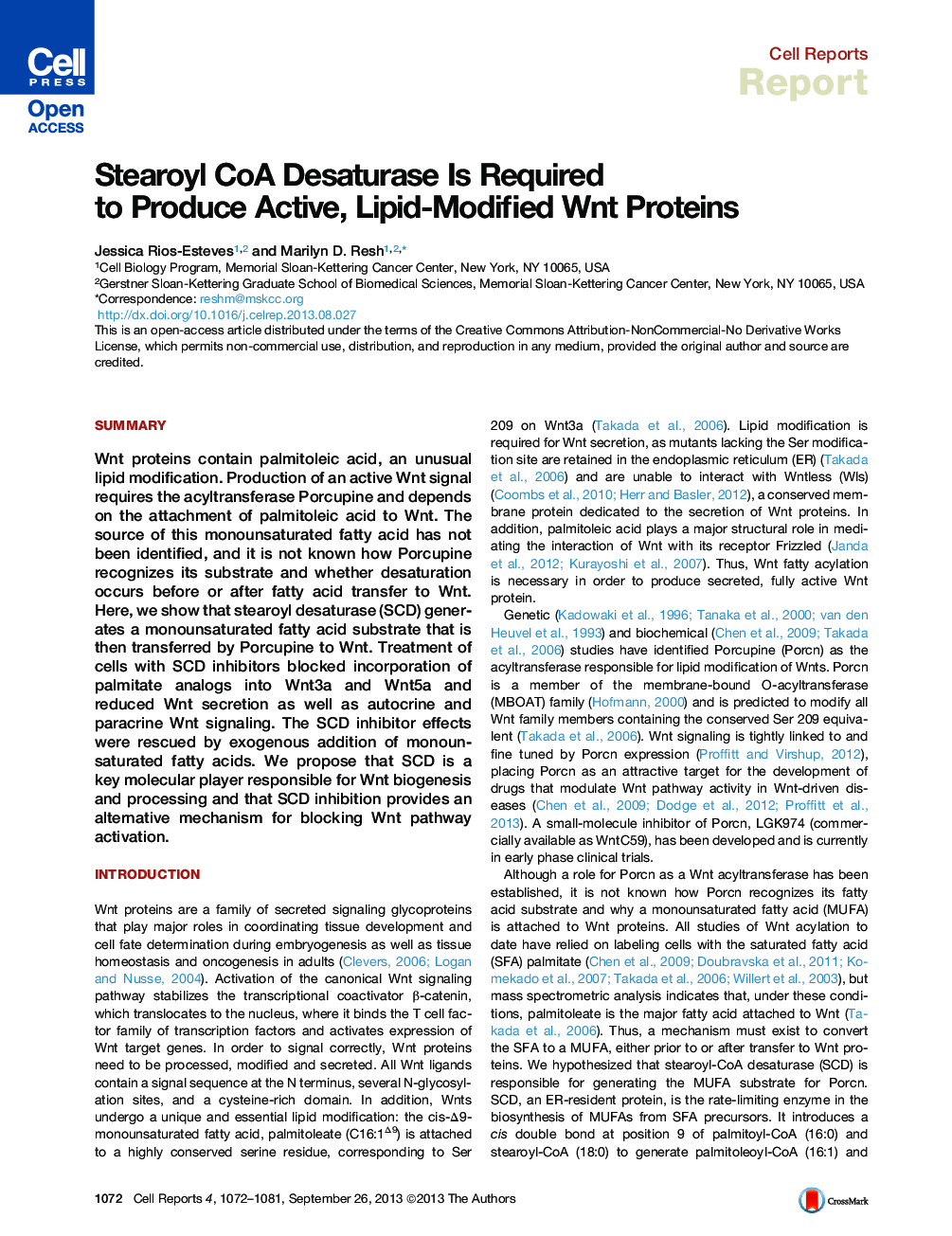| Article ID | Journal | Published Year | Pages | File Type |
|---|---|---|---|---|
| 2042007 | Cell Reports | 2013 | 10 Pages |
•Porcupine-mediated attachment of palmitoleate to Wnt proteins requires SCD•SCD inhibition results in decreased Wnt3a secretion and signaling activity•Exogenous addition of monounsaturated fatty acids bypasses the requirement for SCD•SCD is an essential intermediate in Wnt protein biogenesis
SummaryWnt proteins contain palmitoleic acid, an unusual lipid modification. Production of an active Wnt signal requires the acyltransferase Porcupine and depends on the attachment of palmitoleic acid to Wnt. The source of this monounsaturated fatty acid has not been identified, and it is not known how Porcupine recognizes its substrate and whether desaturation occurs before or after fatty acid transfer to Wnt. Here, we show that stearoyl desaturase (SCD) generates a monounsaturated fatty acid substrate that is then transferred by Porcupine to Wnt. Treatment of cells with SCD inhibitors blocked incorporation of palmitate analogs into Wnt3a and Wnt5a and reduced Wnt secretion as well as autocrine and paracrine Wnt signaling. The SCD inhibitor effects were rescued by exogenous addition of monounsaturated fatty acids. We propose that SCD is a key molecular player responsible for Wnt biogenesis and processing and that SCD inhibition provides an alternative mechanism for blocking Wnt pathway activation.
Graphical AbstractFigure optionsDownload full-size imageDownload as PowerPoint slide
